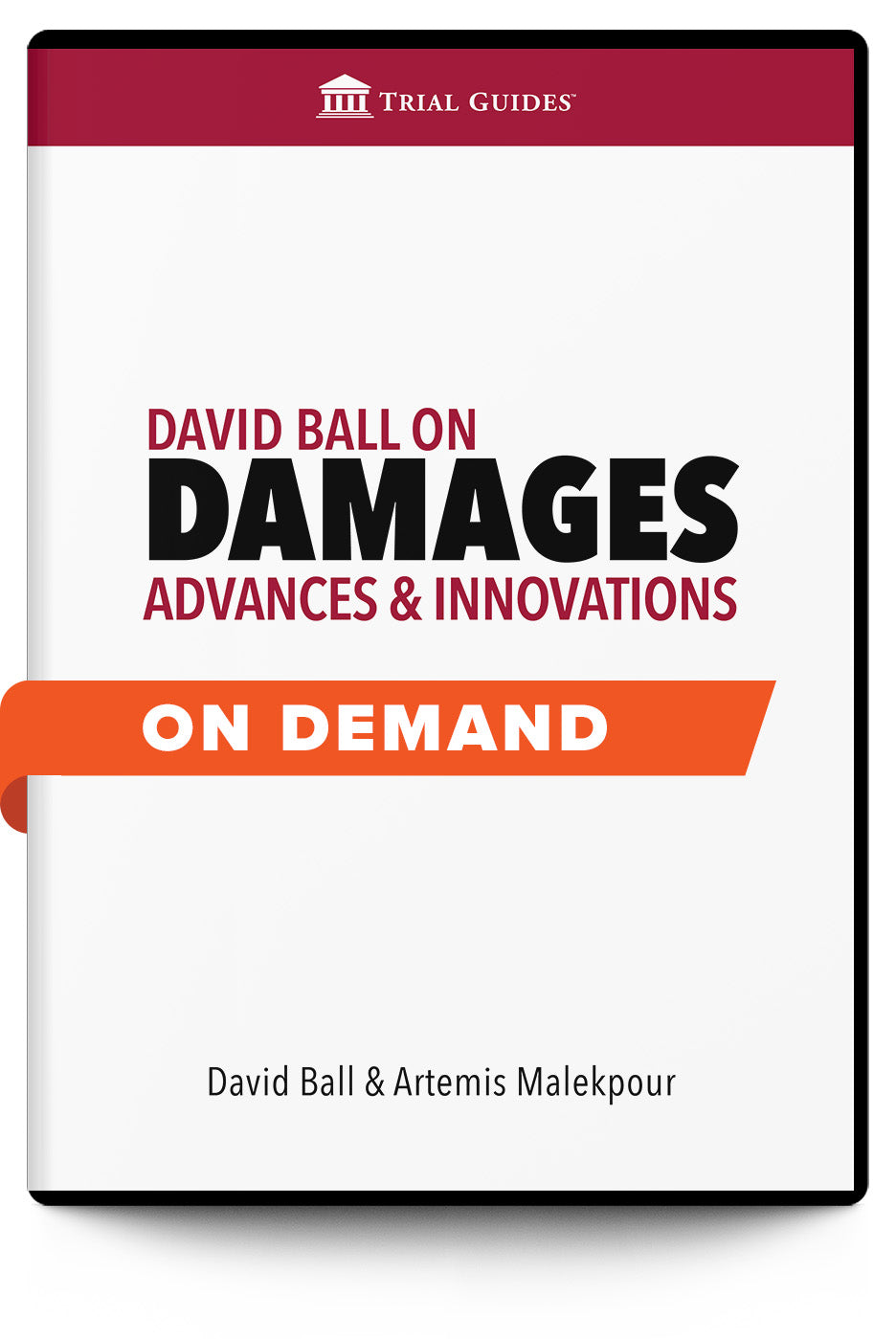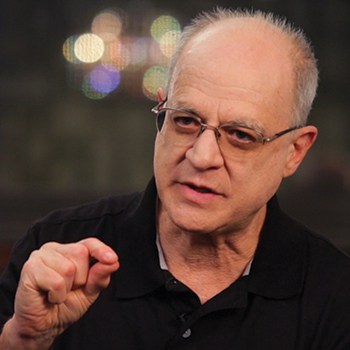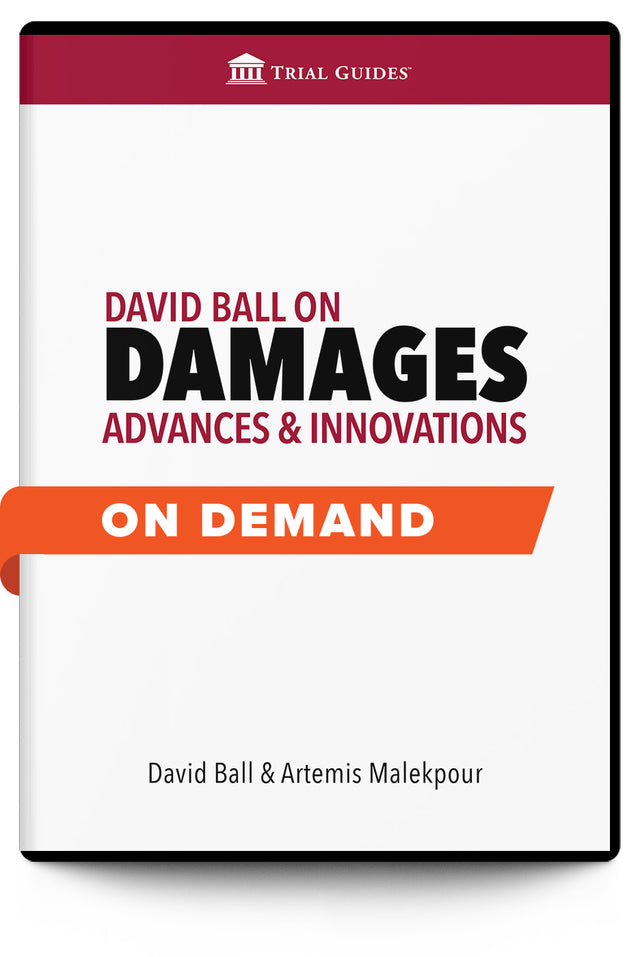Description
Description
Plaintiffs’ lawyers are now faced with a sudden shift in American culture that has radically changed how jurors think and deliberate. Incorrect assumptions about who the best and worst jurors may be for your client’s case can lead you to striking jurors who would have returned the best verdict for your client.
In these presentations, David Ball and Artemis Malekpour share their latest insights on plaintiff’s advocacy. They teach you how to create, and become part of, a cohesive group whose purpose is to provide justice and improve community safety.
This set includes the following videos:
Advocacy During and After Trump (99 Minutes)
David Ball and Artemis Malekpour address the challenges lawyers face advocating for clients and provide insights for how to navigate the tribalism that can divide juries. By acknowledging the Trump effect on jurors, attorneys can overcome the pitfalls of a divided jury and work to unite jurors despite political differences.
In just over an hour and a half Ball and Malekpour cover:
- Practicing in perilous times
- Tribalism in juries and society
- How did we get here?
- Understanding strongly held beliefs
- The role cognitive dissonance plays
- Building unity in the jury
- Finding the root concern or core issue
- Political division as more problematic than tort reform
- Refining methods in the courtroom
The Automatic Win Opening and Anchoring to Increase Damages (52 Minutes)
Uniting jurors who come from diverse backgrounds and perspectives is paramount for success in the courtroom. When facing jurors who may be divided by extreme perspectives, plaintiffs’ lawyers need to employ new techniques to bring jurors together. In this presentation, David Ball addresses the challenges lawyers face and provides insights and strategies for how to unite the divided jury.
In just under an hour Ball covers:
- Scientific proof in the courtroom
- The good and bad forces of topics
- Over-relying on science
- Framing your case
- Techniques for the courtroom:
o Anchoring
o Tug numbers
o Visualizations
- Giving the jury a sense of control
Screening for and Dealing with Case Weaknesses (106 Minutes)
Understanding weaknesses in your case and knowing how to address them can make your position stronger. In this presentation, Artemis Malekpour and David Ball discuss where weaknesses can occur and how to address them. Using footage of focus groups to demonstrate how jurors respond to common issues, this presentation covers common pitfalls and how to address them.
This presentation looks at:
- The power of focus groups when preparing for trial
- Dealing with a bad fact
- Who jurors find to blame
- Negative/defensive attribution
- Empty chairs
- Internet research
- Causation
- Damages
- Best tools for dealing with weaknesses
- Domino Theory
- Duties versus Rules
David Ball & Artemis Malekpour on Opening Statements and Closing Arguments (125 Minutes)
In this presentation, David and Artemis explain how opening statements provide plaintiffs’ lawyers with the opportunity to anchor the jury and bring them into alignment with the story of the case. They also cover important elements for closing arguments and provide examples for addressing common issues trial lawyers face in the courtroom.
In just over two hours, Ball and Malekpour cover:
- Language in the courtroom
- Aligning the jury
- Anchors that rely on cognitive dissonance and confirmation bias
- Rules in opening
- Creating a story in opening
- Closing considerations
- Arming jurors to win for you
- Reconsidering negligence arguments
- Massaging instructions
- Your most important task
- Troubleshooting common problems
- Testifying—who can and who should
Panel Discussion with David Ball, Artemis Malekpour, Joshua Karton, and Eric Oliver (70 Minutes)
This panel discussion between David Ball, Artemis Malekpour, Joshua Karton, and Eric Oliver covers some of the major issues that trial attorneys face when preparing for court. These expert trial consultants address a variety of issues relating to trials and bring their own expertise when addressing how to make cases stronger.
In just over an hour the panel discusses:
- The legal team
- Closing arguments
- Alignment in trial
- Damages
- Using Reptile concepts to increase damages
- Strikes for cause
- Admissions
- Language in the courtroom
Click here for Access Instructions for On Demand Programs.
Authors
Authors
Details
Details
On Demand Program: 452 minutes
Original Air Date: 10/05/2018





